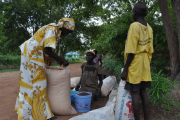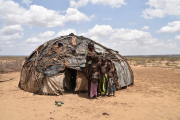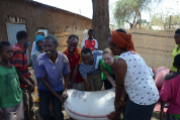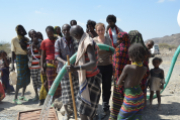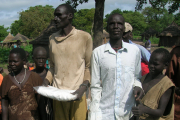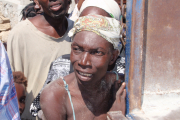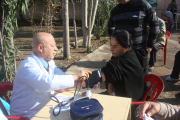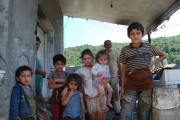Floods, earthquakes, violence or hunger rob hundreds of thousands of their livelihoods every year. Immediate aid is often vital for their survival.
In the field of humanitarian assistance, which consists of emergency and disaster relief, Sign of Hope supports people in need worldwide. Humanitarian assistance is understood primarily as survival aid. In our work, we include self-help forces and also aim to promote the reduction of vulnerability to disasters.
In short-term disaster relief, Sign of Hope quickly and unbureaucratically ensures the survival of people who have been distressed worldwide by devastating natural events and have often lost everything. In doing so, Sign of Hope works primarily with local project partners who are best able to assess the needs of those affected.
In short- and medium-term emergency assistance, Sign of Hope responds to situations in defined priority countries where the timely delivery of relief supplies is important for people's survival. This aid is often targeted at populations affected by prolonged crises, especially conflict or war, but also by environmental pollution or climate change. When there is a thorough improvement in an emergency situation, emergency relief projects can be followed by long-term development cooperation projects.
We base our work on the international standards of humanitarian assistance - the "Core Humanitarian Standard", the guidelines of "Sphere" and the Code of Conduct of the International Red Cross and Red Crescent Movement are mentioned here.
Humanitarian assistance includes reconstruction and rehabilitation measures in addition to "classic" food distributions, emergency health programs and programs to secure drinking water supplies. After flood and drought damage, for example, seeds and agricultural tools are distributed and infrastructure is rebuilt so that people can sustainably ensure their survival.


 Donate now
Donate now





